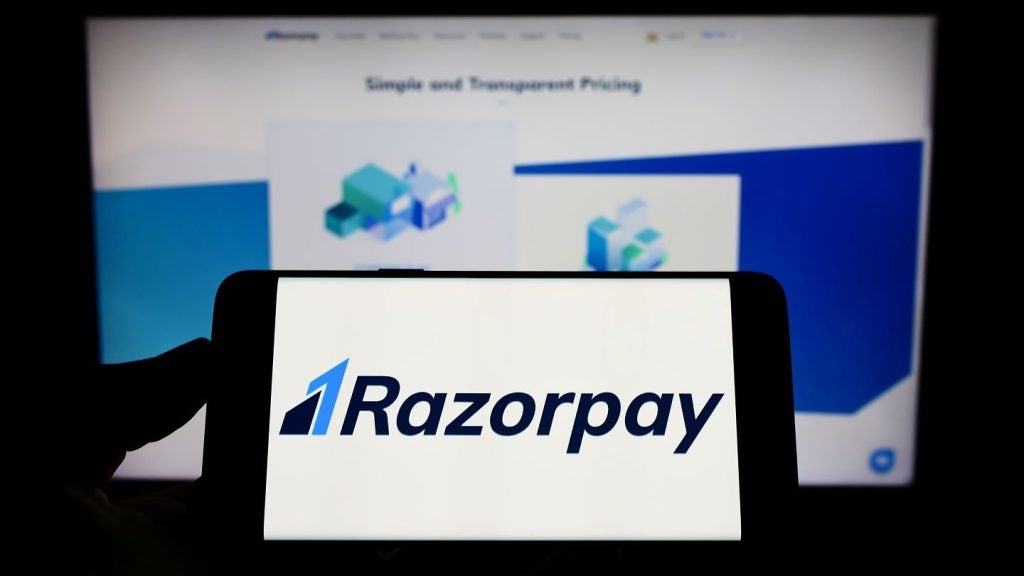Confirmation of Payee (CoP) is a form of verification for digital payments that provides account name checking for service users. When consumers and businesses make a payment, CoP shows them if the money is going to the right account.
CoP helps prevent fraud and makes it much more difficult for criminals to take advantage of customers and redirect funds to their accounts. It also makes it less likely that money is sent to the wrong account – whether through manipulation or a simple mistake.

US Tariffs are shifting - will you react or anticipate?
Don’t let policy changes catch you off guard. Stay proactive with real-time data and expert analysis.
By GlobalDataIn the dynamic landscape of digital payments, CoP stands out as a vital verification tool. It has become a cornerstone of financial innovation worldwide.
The UK is leading the way
CoP was first rolled out in the UK in 2020. The Payment Systems Regulator (PSR) directed the UK’s six largest banking groups to introduce CoP for online and mobile payments before it was expanded to CHAPS (Clearing House Automated Payment System) payments. Beyond the six largest banks, the PSR rolled out CoP adoption to 50 other firms in June and a further 400 firms are expected to introduce the measure by June 2024.
It’s no wonder the UK is leading the way. The payments ecosystem has had to deal with eye-watering levels of authorised push payment (APP) scams, which overtook card fraud in the first half of 2021.
The UK’s CoP service is an interbank scheme managed by Pay.UK and many banks have turned to solution providers operating in this space such as Bottomline, Banfico, and SurePay.
The global impact of CoP
CoP initiatives have now sprouted across Europe, reflecting a shared commitment to secure and accurate digital payments. EBA CLEARING, a pan-European payment infrastructure provider, is implementing a pan-European IBAN/name check through its Fraud Pattern and Anomaly Detection (FPAD) solution.
On a cross-border level, SWIFT is seeking to address this problem space using its payment pre-validation service. JP Morgan is using Confirm, and iPiD is making waves as the startup battling these goliaths.
Cross-border interoperability remains a challenge due to differing privacy legislation, as well as payment habits. The European Payments Council is currently working on developing a pan-European CoP rulebook that will soon be available for public consultation.
Now, the EU has plans to legislate too
The European Union (EU) has taken decisive steps to legislate CoP across the bloc, marking a significant evolution in its approach to digital payments.
The EU’s instant payments regulation, which was ratified in November last year, mandates payment service providers (PSPs) offering instant payment services to verify the payee’s IBAN and name, notifying users of discrepancies before transaction finalisation. The forthcoming Payment Services Regulation (PSR) expands CoP requirements for PSPs offering credit transfers in any EU currency.
The EU has stressed that it wants to make instant payments the new normal since its Retail Payments Strategy, published in September 2020. The roll-out of CoP alongside this shows that it wants to get ahead and prevent the same levels of fraud as has taken place in the UK since the roll-out of Faster Payments.
While CoP is arguably necessary for an increasingly digitised payments environment, it will come with costs to financial institutions. For example, the impact assessment for the EU’s instant payments regulation acknowledges there will be one-off implementation costs for institutions to check that the payee’s IBAN matches the payee’s name.
The European Commission argues that ongoing costs for PSPs would be limited and that the cost impact for PSPs will be neutral over time, as significantly less time and effort is spent following up fraud and errors.
Not implementing a sufficient CoP model could also mean liability costs for PSPs. With the PSR, reimbursement to customers becomes mandatory in almost all instances, unless the firm has reasonable grounds to believe the customer is committing fraud.
So, having a form of CoP in place will make it less likely that customers will get to such a point and request to be reimbursed.
CoP’s crucial role in secure and accurate payments
As digital transactions expand, the importance of Confirmation of Payee cannot be overstated. The UK’s proactive adoption and success of CoP serve as a model for other regions, prompting the European Union to legislate its widespread implementation.
While financial institutions may incur initial costs, the long-term benefits – enhanced security, reduced fraud-related expenses, and adherence to regulatory requirements – make CoP a crucial component of modern payment systems.
As we navigate the digital landscape, the global financial community must collaborate to overcome challenges and establish seamless cross-border interoperability, ensure the widespread effectiveness of CoP in safeguarding transactions, and strengthen the integrity of the financial ecosystem.
Kjeld Herreman is Head of Strategy Advisory at RedCompass Labs









